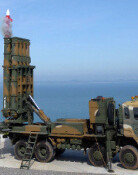[Editorial] Food Security and 25% Grain Self-Sufficiency
[Editorial] Food Security and 25% Grain Self-Sufficiency
Posted April. 07, 2008 05:12,
The world faces an imminent food crisis as the price of rice, one of the most common staple foods eaten by more than three billion people around the globe, is rapidly rising. When rice exporters such as China, India and Vietnam restricted rice exports for security reasons, it drove people in rice importing countries to scramble to buy and stack rice bags and even sparked bloody riots.
Korea is fortunately not directly impacted by the rice crisis, but the country is dependent on grain imports to meet 75 percent of national demand. The prices of corn, soybean and wheat, three crops on which Korea is nearly 100 percent dependent on imports, have jumped 73 percent, 65 percent and 100 percent, respectively, over the past 12 months alone. Some warn that the rice shortage could have a spillover effect on other types of cereal to spark a global food crisis.
The sharp inflation is the result of an imbalance of supply and demand. Consumption in the rapidly growing and densely populated China and India is on a sharp rise, but food supply has remained stagnant due to natural disasters and biofuel production. Worse, rice-exporting countries stopped overseas shipments food to curb domestic inflation and secure strategic food reserves. The shortage spread across borders in no time. We cannot blame the food nationalism of exporting countries, which have to care for their own people first. This is the cold reality of the international community.
Last year, Korea produced 4.68 million tons of rice, more than the demand of 4.163 million tons. The country also has reserves of 695,000 tons of rice. Fortunately rice is not another worry for Korea on top of rising oil prices and the worldwide financial crisis. But the situation is hardly safe. Koreas grain self-sufficiency is 25.3 percent (as of 2003), one of the lowest (26th) out of the 29 members of the Organization for Economic Cooperation and Development. We should learn a lesson from the Philippines, a one-time rice exporter that now rations imported rice to its people.
Small land size is a fundamental limit to Koreas food production. Thus a forward-looking master plan on food security is urgently needed. The grain portfolio that is too heavily weighted on rice needs diversification; dormant paddies and fields should be found and utilized again. Grain imports should be controlled and investment should be made in overseas countries, either directly or indirectly, to secure food in times of crisis.



![[속보]“하메네이 아들, 이란 차기 최고지도자로 선출”](https://dimg.donga.com/c/138/175/90/1/wps/NEWS/IMAGE/2026/03/04/133459477.1.jpg)
![매일 반복하는 이 습관, 동맥을 야금야금 망가뜨린다[노화설계]](https://dimg.donga.com/c/138/175/90/1/wps/NEWS/IMAGE/2026/03/03/133455012.3.jpg)


